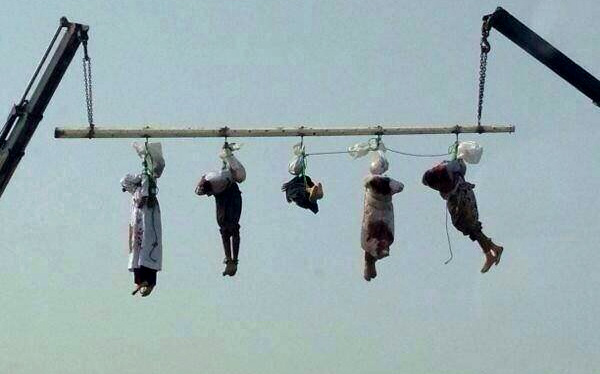
Saudi Arabia, the Gulf kingdom ruled by an absolute monarchy and key United States ally, is planning to behead 14 men for participating in anti-government protests after what Amnesty International called a “grossly unfair mass trial.”
“By confirming these sentences Saudi Arabia’s authorities have displayed their ruthless commitment to the use of the death penalty as a weapon to crush dissent and neutralize political opponents,” Samah Hadid of Amnesty International said.
Earlier this month, the Supreme Court of Saudi Arabia decided to uphold the sentences, and the 14 men were transferred to Riyadh, indicating that the beheadings could occur anytime.
“King Salman’s signature is now all that stands between them and their execution,” Hadid said.
According to Amnesty International, the condemned prisoners were “subjected to prolonged pretrial detention and had been tortured and otherwise ill-treated during their interrogation to extract their ‘confessions’.”
The condemned includes a young student named Mujtaba al-Suweyket, who was only 17 at the time of his sentencing. He was in the midst of preparations to leave to the U.S. to study at Western Michigan University. He was arrested at the airport.
Western Michigan University urged “critical national political figures with influence” in Saudi Arabia to prevent the executions when they found out what had happened to the prospective student.
“We were stunned to learn, for the first time, of this situation. It is not unusual for an admitted student to opt out of enrolling at the last minute, so we had no idea there was such a troubling reason behind this student’s failure to come to campus,” the spokes person for the university, Cheryl Roland said to Michigan Live.
The American Federation of Teacher’s has also issued a statement urging U.S. President Donald Trump to use his influence with the Gulf kingdom to stop the executions.
In addition to al-Suweyket, the men to be beheaded for their protest participation includes Hussein al-Rabi’, Abdullah al-Tureif, Hussein al-Mosallem, Mohamed al-Naser, Mustafa al-Darwish, Fadel Labbad, Sa’id al-Sakafi, Salman al-Qureish, Munir al-Adam, Abdullah al-Asreeh, Ahmad al-Darwish, Abdulaziz al-Sahwi, Ahmad al-Rab’i.
Executions employing brutal methods, such as beheading and crucifixion in one of the largest purchasers of U.S. weapons as well as a key regional ally for the U.S. and United Kingdom, are unfortunately a regular occurrence. Amnesty International estimates that at least 66 people have been executed in 2017 alone, with 26 of those being in the past three weeks.
© teleSUR

